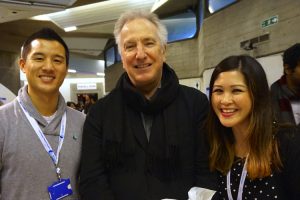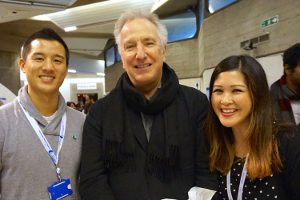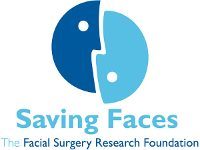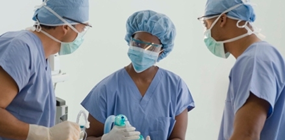NFORC was delighted to host a free Maxillofacial / Head & Neck Trainee Collaborative Research Summit.
Welcome to the Saving Faces and NFORC websites wiki. The aim is to be a one-stop-shop for all website-related info, but in a way that can be searched and crossed-referenced easier than a word document. This is not meant to be a rigid SOP as we might use for research purposes, but is meant to be a dynamic guide which will grow and develop over time as the websites change.
A wiki is a collaborative affair. Where people can see that information is incomplete, out of date or incorrect they can easily make changes and suggestions themselves.
This wiki will cover
- Our Sites
- Email systems
- Hosting and domain registration
- Other 3rd party applications for digital communications
Most surgical treatments are relatively successful, but there is usually more than one treatment for the same condition and some are more successful than others. Unfortunately, the evidence for which treatment works best is not available anywhere in the world. Obviously, it would benefit all patients if we could correct this situation and NFORC is setting out to do just that, by carrying out “clinical audits” of treatment.
This research centre, funded by Saving Faces, is a world first. Using its research the UK will lead the world in finding answers to which treatment works best for all diseases, disfiguring conditions and injuries affecting the head, face, neck, and mouth. This revolutionary organisation will innovate and transform the lives of all patients with these conditions worldwide.
The 3 national organisations whose surgeons deal with these problems have made this possible by partnering Saving Faces to make NFORC their research unit. Their aim is that all surgeons in their organization will study the outcome of the treatment they use for every one of their patients. This level of collaboration has not happened anywhere else making NFORC unique and a world leader. We anticipate that the treatment results of 2.5 million patients a year will be available for study.
As a result of this successful collaboration the top surgical organization in England, the Royal College of Surgeons, has chosen NFORC to be its Head and Neck Clinical Trials Unit.
As a loyal supporter of Saving Faces you are invited to the NFORC Launch event at The Purcell Room in London’s South Bank Centre on Wednesday 26th November 2014 to hear exactly what we are doing. But places are limited so book your place now by phone or email.
NFORC has already started conducting vitally important research with top surgeons in their fields for common problems that have yet to be solved. We’ve listed below some of these and the surgeons leading them. If you have had any of these problems we’d be delighted to hear from you – you might also help by joining one of our patient advisory groups:
- How best to treat precancerous areas of the mouth so they don’t turn into cancer. Led by Prof Peter Thomson, Newcastle University.
- How best to treat children’s facial injuries to achieve least visible scarring. Led by Ayesha Dalal, Royal Devon and Exeter Hospital.
- Jaw joint and facial pain are incredibly common and poorly treated. NFORC will compare different treatments for this to determine best practice. Led by Shaun Matthews, King’s College Hospital and Andrew Sidebottom, Queen’s Medical Centre, Nottingham.
- Radiotherapy (RTX) is one of the 3 common treatments for cancer. RTX in some patients causes severe damage of normal tissues blighting the lives of these patients. NFORC will seek genetic markers that predict whether a patent would be better treated with less RTX because of their extreme sensitivity to RTX. Led by Andrew Lyons, Guys Hospital.
- Jaw fractures: Two studies comparing different treatment practices for 2 types (jaw joint and angle). Led by Simon Holmes, Barts Hospital, London; and Peter Revington, Frenchay Hospital, Bristol.
- Collecting information from every UK patient who seeks treatment for facial deformity and their opinion on the benefits or otherwise of the treatment they received so that it can be improved. Led by James Gallagher, Northampton General Hospital.
- Better ways to identify and treat neck secondaries at an early stage in patients with mouth and throat cancer. Led by Claire Schilling, Guy’s Hospital.
- Looking at the impact of head and neck cancer on patients’ long-term quality of life. Led by Prof Ania Korszun, Institute of Psychiatry, Queen Mary College London.
- Comparing different ways of managing eye socket fractures to determine which works best. Led by Jonathan Collier, Chelsea and Westminster Hospital, London.
- Comparing treatment for children with frozen jaws to see which works best. Led by Nad Saeed, John Radcliffe Hospital, Oxford.

Alan Rickman with Saving Faces staff at the launch of NFORC in November 2014
On Tuesday 12th April, Saving Faces rolled out the red carpet for a preview screening of “Eye in the Sky”, Alan Rickman’s last film before he died.
Headline News: Our Data Monitoring Committee applaud SEND recruitment. They find statistical significance in interim results and recommend trial closure to new patients, rapid publication and maintain follow up of all patients for 5 years.
The SEND trial is looking at two commonly used surgical techniques for the treatment of early mouth cancer. After an early analysis of the results, our Data Monitoring Committee have found that there is enough evidence available to determine the best course of treatment for patients and so our flagship clinical trial will no longer be recruiting patients. Over the coming months we will be collecting and analysing the final data. We will be publishing the results in the near future.
Expert Patient representative – former partner Linklater’s; JP, North Kent; Accountancy and Actuarial Discipline Board Member; Facial Trauma Patient.
| Title | National 3rd Molar (Wisdom Tooth) Audit | ||||||
| Acronym | N3MA | ||||||
| Study Type | National Clinical Audit | ||||||
| Status | On hold | ||||||
| Funding | Saving Faces – The Facial Surgery Research Foundation | ||||||
| Ethics | N/A | ||||||
Applications are invited from BAOMS members/Fellows in Training for a research fellowship in oral and maxillofacial surgery (OMFS). The fellowship will cover the salary and on-costs of a clinical researcher up to £43,000 plus a small research support grant of up to £3,000.
The applicant should hold dual medical and dental qualifications and ideally have a National Training Number in OMFS.
Applicants will have a strong publication record. Applications are considered on the basis of the applicant’s academic achievements and potential, the scientific merit of the research proposal, and the research environment provided by the sponsoring department.
Deadline for receipt of all forms is 12 noon on Friday 10 March 2017.
Please note that shortlisted applicants will be invited for an interview during the morning of 23 March 2017 at the BAOMS Endowments Sub Committee meeting so please keep this date free if possible.
Pioneering surgeons at the Royal London Hospital are repairing our broken cyclists. Rosamund Urwin speaks to Professor Hutchison about the National Facial Oral and Research and reconstructs their incredible stories.
Read the full story here



